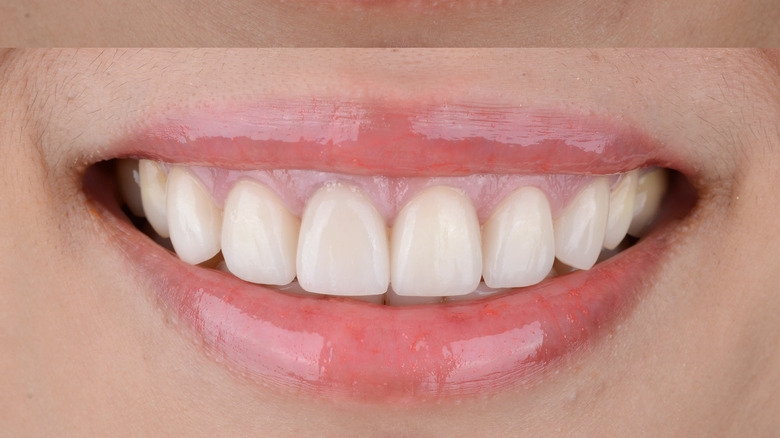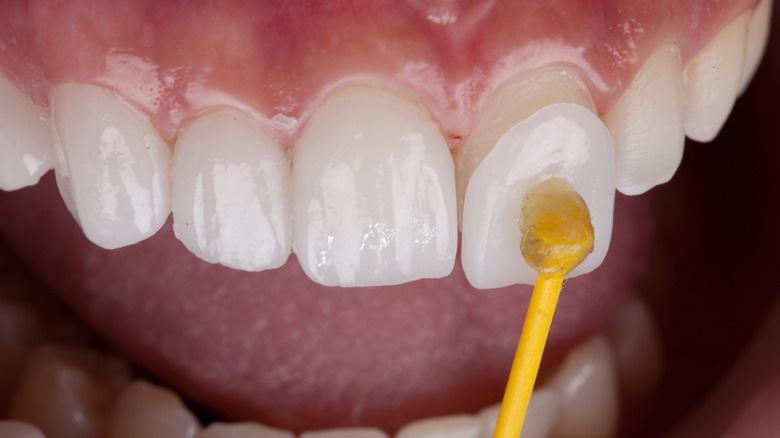Veneers Versus Lumineers: What's The Difference?
When it comes to your smile, you want to do everything that you can to be sure you've got the best one you can possibly have. After all, your smile is one of the first things people notice about you and when it's not quite attractive, your self-confidence can take a hit.
Maintaining a regular oral hygiene routine is the first step to keeping a healthy smile. Some individuals may need more aggressive treatments like braces or retainers to help provide teeth alignment. However, even some of the individuals who are the most dedicated to maintaining dazzling, beautiful teeth can find themselves facing dental dilemmas.
If you've been looking for a more permanent way to correct the appearance of your smile you might have a need for veneers or veneer alternatives. So what exactly are veneers or Lumineers and how do you know which is the better option for you?
What are veneers?
Veneers are typically a porcelain covering that is bonded to your existing teeth. Often they are selected to improve the aesthetic of an individual's smile by covering broken, discolored, cracked, or chipped teeth. Veneers are bonded to the existing teeth and require some preparation prior to their placement, according to Healthline. However, when applied, veneers can give an individual the brightest, most dazzling, smile. If you're looking to have those celebrity-perfect pearly whites, veneers are one way to achieve them.
Veneers are typically opaque and can effectively cover gaps or smaller-than-normal teeth with little to no noticeability (via Bonham Dental Arts). Traditionally, porcelain veneers are roughly 0.5 millimeters thick and have a look and feel that is similar to regular teeth. In addition to providing a smile improvement, veneers are stain resistant and durable. Most veneers offer at least eight to 10 years of wear before repairs or replacement would be needed.
However, their application process can take some time with preparation visits and application visits spanning several weeks. The covers are bonded to the existing teeth by grinding the surface of the teeth to make them thinner (via Healthline). Prior to the application of the semi-permanent covers, a temporary acrylic veneer is worn. The in-chair time can be quite a bit as the process requires several hours for multiple teeth. Another drawback to veneers is their cost. For traditional veneers, the average price ranges between $925 and $2,500 per tooth (via Healthline).
What are Lumineers?
With the extensive time and cost that is required by veneers, many individuals are hesitant to commit to the process but still want the ability to quickly improve their smile. While dental implants are becoming more affordable, like veneers, the process is costly and time-consuming. A dental lab in Lompoc, California, has come up with an alternative solution: Lumineers (via Lumineers). These lightweight, ultra-thin, proprietary porcelain laminate dental covers are similar to traditional veneers without the time-consuming prep work and chair time.
Healthline explains that Lumineers are much thinner, which helps to avoid the need for the existing teeth to be ground down for the application. However, the thinness of the Lumineers makes them less ideal for individuals who have severely discolored or gapped teeth as they are more translucent. Lumineers are not as permanent as veneers and can be removed relatively easily after application with minimal to no damage to the existing teeth (via Healthline). Their cost is similar to traditional veneers, ranging from $800 to $2,000 per tooth. However, Lumineers can last 10 to 20 years, providing almost double the longevity of the smile solution.
Lumineers are a better option for individuals who are looking to improve their almost perfect smile. However, for those with severely discolored teeth or significant gaps, veneers or another alternative may be better.



